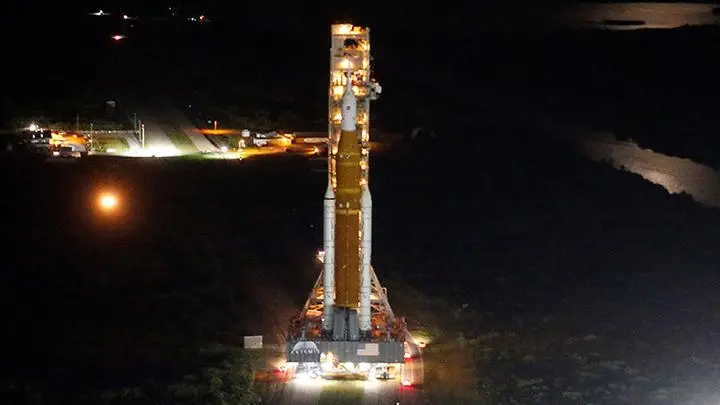
TEMPO.CO, Jakarta - The United States' space agency, NASA, is pushing forward with the scheduled launch of the Artemis II mission in February. Thousands of employees and contractors involved in the mission program are reported to continue working despite the U.S. federal government undergoing a shutdown and not receiving their salaries as a result. The shutdown has been ongoing for a month following the failure to approve the fiscal 2026 budget.
So far, NASA's crucial operations remain ongoing, but officials and contractors warn that the shutdown's impact could soon be significant. At the Kennedy Space Center in Florida, technicians are working to ensure that the Space Launch System (SLS) rocket and Orion capsule are ready on schedule. In the past four weeks, they have completed crucial stages, including placing Orion on top of the SLS rocket, marking the completion of the assembly for Artemis II.
Artemis II will be the first crewed flight using Orion and SLS on a 10-day mission to orbit the far side of the moon before returning to Earth. According to NASA officials, the work on Artemis II cannot be halted for the safety and reliability of the mission. "All work on Artemis II is exempt to protect assets and prevent crew risks arising from unplanned closures and reopenings," he said, as quoted in the Ars Technica report dated October 29, 2025.
He stated that the contract funding remains valid until early November, and the workers have been given approval to continue their work. "The Procurement Office has sent a letter to the contractors, stating that work is allowed during this funding hiatus."
However, the shutdown is beginning to cause inefficiencies that could affect the Artemis II schedule, similar to the impact experienced in the air traffic control sector. Vice President and Orion Program Manager at Lockheed Martin, Kirk Shireman, said that the situation initially was just a minor disruption. "I do think we are quickly approaching the point where this will become a significant impact, and this is more related to the overall infrastructure."
Shireman added, "Everything that affects human life is influenced by the government, and when the government shuts down, there will be an impact."
Shireman, a former head of the International Space Station (ISS) program who has faced a similar shutdown for 35 days, cautioned that many small companies in the space industry ecosystem would not be able to survive. "People, companies are not paid; they will ultimately not be able to continue working."
He hoped that the deadlock between Congress and the Senate would soon end so that the fiscal budget could be disbursed. With the launch window only available for a few days every month, a delay of just a few days could postpone Artemis II by up to a month, adding pressure on NASA to keep to the schedule amid the political crisis in Washington.
